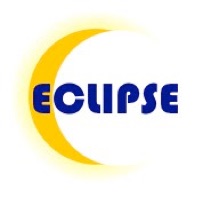Ralph was a participant in the Understanding Science project. When I interviewed him in the first term of Y10 he had just started a topic in his chemistry classes on atomic structure.
I: So what’s atomic structure?
R: Erm, like basic building blocks of everything round us so everything, the smallest thing, you can ever have something really is an atom, and there are lots of different types of atoms, and they’ve got, erm, so I think they have a nucleus and like a cloud of electrons around them, and there’s neutrons rotating round, circulating rotating, round the nucleus.
Ralph's comments reflecting what I'd been told before by a number of students when talking about how matter is composed of particles, something that seemed somewhat paradoxical, i.e., that
This seems somewhat contradictory, how can the smallest thing have component parts which would seem by definition to be smaller things? The idea that an atom is the smallest part of matter possible seems to be taken on by some students as something of a mantra, which they happily repeat before proceeding to describe the subatomic particles that the 'atomos' units is composed of without any apparent sense of irony or cognitive conflict.
I was interested to see how Ralph made sense of this apparent paradox:
I: So you’ve got a nucleus, and then you’ve got a cloud of electrons?
R: Yeah.
I: and you’ve got neutrons circulating?
R: Yep, neutrons in like an orbit about it.
I: That sounds pretty erm, a busy thing, doesn't it?
R: Mm.
I: And you say it’s the smallest thing you can have?
R: Smallest thing you can ever, smallest building block of life, but you can, there is kind of like radioactivity and things, you can smash the atom in half, but it kind of creates an explosion or something…
So on probing, "the smallest thing, you can ever have something really" had been qualified in two ways. Now the atom was the "smallest building block of life" rather than matter, and it could be decomposed into smaller parts, but then would not be stable.
After further exploring Ralph's model of the atom where the nucleus is like the sun in our universe - the thing everything orbits around, including the orbiting neutrons, he confirmed the status of the atom as the smallest thing:
I: and that’s the smallest thing you can get?
R: Yeah.
I: Smallest building block you can get?
R: Yeah.
So what’s a neutron? Neutron is erm, like, I don’t know, it’s got, it’s something, but it’s got a neutral charge, so like erm, electrons have got a negative charge and – the neutrons have got negative sic, no charge, and there’s - something else, protons which have got a positive charge, I’m not sure where the protons come into it though. They might be there somewhere as well? Yeah, they’re there somewhere, but I can’t remember. And they’re positive? Yeah. So you’ve got positive protons, Yep negative electrons, Yep and what were the neutrons? Neutral, so they haven’t got one, they haven’t got a charge, so they can like, so they’re just there. Yeah. And the neutrons are in some kind of orbit? Yeah. Erm. And the electrons are in some kind of cloud? Yep, they’re the cloud round it, I’m not sure why. And the protons are kind of mysterious? Yeah. We’re not sure about them? I can’t, I haven’t, I don’t think we’ve learnt properly about those yet. You’ve only just started it? Yeah, we only started it yesterday, and just watched a video on it. Oh I see. But there’s a nucleus? Yeah the nucleus is kind of like the, the, like the sun in our universe, it’s like the thing everything orbits around, I’m not quite sure what it does though. But does it do anything? Chances are yeah, cause otherwise it wouldn’t be there, but I’m not quite sure yet what it does. Sounds quite complicated? Mm. and that’s the smallest thing you can get? > Yeah. > < Smallest building block you can get? < Yeah. Phew, I’m glad that’s the smallest thing, if that’s that complicated. Ha. Oh, okay, well that sounds quite interesting, but you are going to do a lot more on that? Yeah. Yeah.
Return to ECLIPSE homepage
List of science topics

Dr Keith S Taber kst24@cam.ac.uk
University of Cambridge Faculty of Education
© Keith S Taber